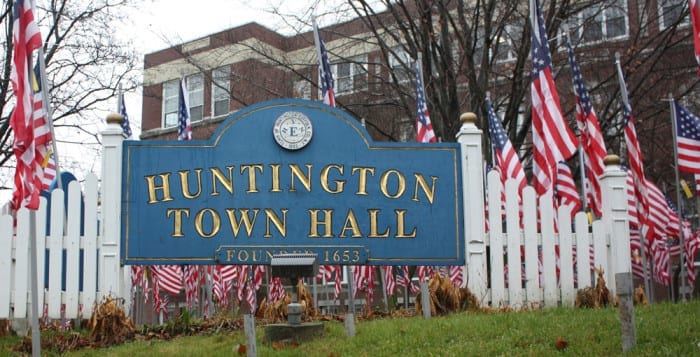Huntington Town is exploring how to stay on while the power isn’t.
The town board voted last week to apply to the New York State Energy Research and Development for a $100,000 grant that would explore the feasibility of creating a community microgrid energy system that would link up Huntington Town Hall, the Village Green senior center and the Huntington Sewer District wastewater treatment plant.
The town will spend $7,750 to hire technical consultant TRC, based in New York, to assist in preparing the grant application by the May 15 deadline. Huntington Hospital and the Huntington YMCA could also be potentially added to the microgrid, the town board resolution said.
Microgrids are essentially self-sustaining, small electric grids with their own generation resources and internal loads that may or may not be connected to the larger electric utility macrogrid, NYSERDA’s overview of the grant program said. NYSERDA, in partnership with the Governor’s Office of Storm Recovery, said it plans to award up to $40 million under the three-stage NY Prize Community Grid Competition to support the development of community microgrids throughout the state.
“When a widespread power outage affects the town, it is important that electricity be restored to sites that provide vital emergency services,” Supervisor Frank Petrone (D), who spearheaded the measure, said in a statement. “Creating a microgrid linking Town Hall, the Village Green Senior Center, the Huntington wastewater treatment plant, Huntington Hospital and the YMCA could help to restore electric service to those locations more quickly. The concept certainly merits a feasibility study, which is why the town is applying for this grant.”
Electric power in the U.S., including generation and distribution systems, used to operate on a smaller scale, but over time, regional utilities were developed to deliver cost-effective and reliable water, heat, power, fuel and communications over broader distances, according to a summary of the program on NYSERDA’s website.
“These systems are, however, vulnerable to outages that can impact large regions and thousands of businesses and citizens, particularly as a consequence of extreme, destructive weather events,” the summary said. “Microgrids could help minimize the impact of these outages by localizing power generation, distribution, and consumption so that a fallen tree or downed wire will not interrupt critical services for miles around.”
During Hurricane Sandy, Huntington Town Hall lost power, town spokesman A.J. Carter said, but officials were able to get the building back running via a generator. Getting on a microgrid, he said, could help Huntington’s most crucial facilities get online faster during outages.
“Theoretically it would allow the utility to target this grid first because of its emergency nature,” Carter said.
Councilwoman Susan Berland (D), who seconded the resolution offered by Supervisor Frank Petrone, said the town’s response to Hurricane Sandy power outages was good, but the microgrid is still worth exploring.
“If we could explore the idea of being on our own grid that’s something we should absolutely look into,” she said. “The exploration and the alternate conversion are obviously two different things, because you’d have to see what it would entail and whether it’s doable.”





